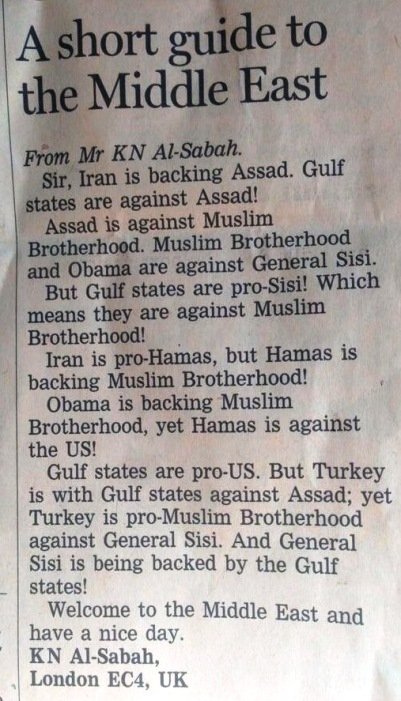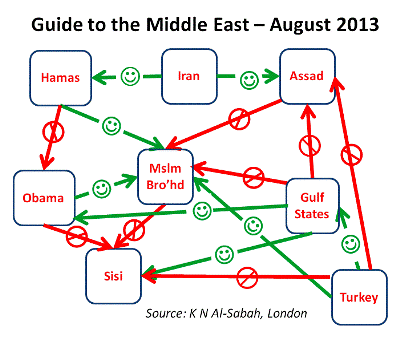Sadly, for the first time in any rugby world cup, Ireland
did not enter
a Men’s team and not through lack of ability. At the last
RWC7s in Dubai in
2009, John Skurr coached Ireland’s men into the Quarter Finals, knocking out
Australia on the way. Why Ireland has spurned men’s Sevens ever since only
the Irish Rugby
Football Union can answer – and should. The wider Sevens circuit, involving annual
competitions around the world is not only a magnificent show piece for
rugby, but allows talented youngsters who might not quite make it into the
professional Fifteens game to show what they’re made of – future
stars such as
Simon Zebo for
example.
Happily, however, since April of last year, the IRFU has given full
support to a Women’s squad, ably managed by Gemma Crowly and coached by the
same John Skurr, which has been competing around the globe, and with some
success, ever since. The players are all amateurs, so the rigorous demands
of arranging training around work/study leaves no time for other pursuits,
yet they would have it no other way. This World Cup is the ladies’ biggest
challenge so far and despite being as beset by injuries as the
Lions they would give it all
they had. It helped that eight of the twelve players were
doughty veterans of this year’s epic Grand Slam victory in the XVs
game against England, Scotland, Wales, Italy and France. (In over a hundred
years, Ireland's men have only ever won two Grand Slams).
As for Moscow, it proclaimed that it was actually staging something closer to a festival of
sport, culture and hospitality than a mere event, for there was to be more going on
than just the Men’s and Women’s World Cup tournaments. In fact there
were,
simultaneously, no fewer than nine other Sevens tournays involving over two
thousand players from across the vast Russian republics battling it out for
different prizes on the various side pitches that form part of the huge
Luzhniki complex. The music element of the festival was to comprise an array
of bands, headlined by
Space from France, while various shows and displays
would emphasise Russian
space technology and achievements.

And of course for the less cultured rugby aficionados there
was the promise of a
wild variety of food and drink in abundance. For how else could your humble
correspondent and fellow-fans survive 2˝ days of frenetic, high-speed,
try-scoring rugby without a steady supply of caviar and vodka? Wipium!
Note: “Wipium” is the Russian for Cheers
(or so I am told).

Back to List of Contents
Space
for Sevens - and Crapdogs - 1st July 2013
Dispatch 2 of 2 (“After”)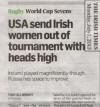
“Space” was the curious theme chosen by the Russians for the Rugby
World Cup Sevens which they hosted over the last three days of June 2013 to showcase their ability to stage
international sporting events. They mean of course their considerable astronautical achievements dating back to the 1950s.
But on entering the
cavernous, 89,000 seater
Luzhniki
Olympic stadium,
space
was the first thing
that hit you – empty
space, for it
was only about a quarter full - and that was only on the final afternoon.
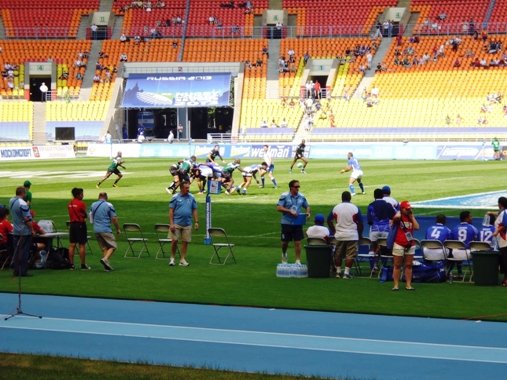
Likewise,
the distant Gorodok stadium (between the main stadium and which no transport
was provided) where the women played had seating for 6,000 but barely 2,000
attended at its busiest moment. The turnout below was more common.
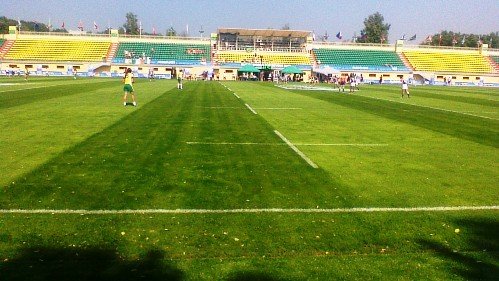
Both stadia also ensure there are acres of
space between the
hapless fans and the edge of the pitch, just to make viewing that little bit
more irritating.
Considering how the
40,000 seater stadium in Hong Kong and the
50,000
facility in Dubai were heaving, raucous sell-outs for previous RWC7s,
Russia’s failure to put bums on seats has been a huge lost opportunity in
both revenue and atmosphere.
However the three-day try-fest of actual rugby was more scintillating than
ever – fast, skilful, passionate, and displaying an astonishing level of
physical fitness. To aid recovery after each game, players would climb into
wheelie-bins emblazoned with their national flag and filled with iced water.
They seemed to enjoy it. Brrrr.
An exciting feature of Sevens is the enthusiastic participation of
nations not widely recognized for their rugby prowess, such as the
Philippines, Tunisia, Portugal, Kenya, Netherlands, China, Zimbabwe, yet
here they are fighting it out with New Zealand and the other big boys and
gals to compete for a World Cup.
In fact there are three sets of trophies.
After the group stages, teams were split based on performance into new
groups which then competed for a bowl, a plate and for the best the hallowed
cup itself. Ireland’s women, under Gemma Crowley and John Skurr, played
magnificently in their group games to qualify for the cup. But two
last-minute tries by the USA denied Ireland of the 5-0 lead it sported for
most of the quarter-final, so Ireland exited the tournament, though with
heads held high.
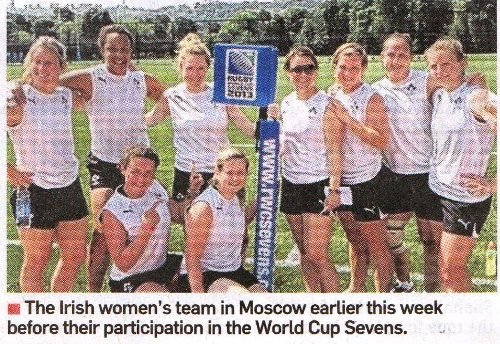
It was eventually New Zealand who were crowned Sevens World Cup
champions of both the Men's and Women's variety, with cups and medals to prove it.
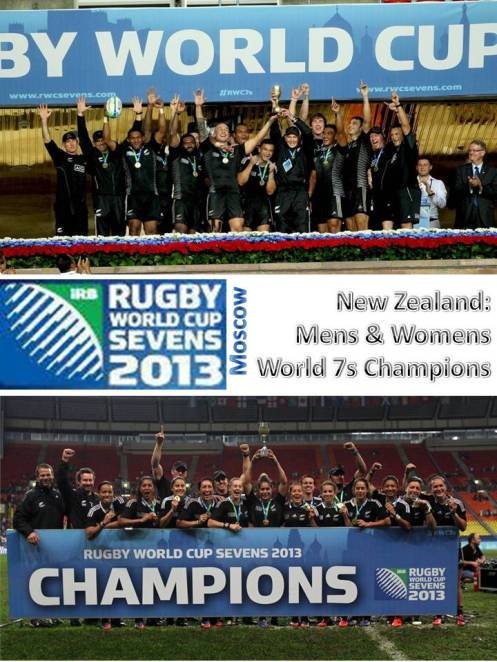
With the two World Cups they already hold for the XVs game
(Men's and Women's), this brings New Zealand's haul to four. Oh, and just
for good measure, the Sevens Player of the Year is
Tim Mikkelson from - you guessed it - NZ. (How insufferable is all
that? !!)
But enough about the rugby.
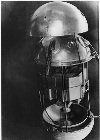
Russia’s “space” theme was evident in an
interlude where 200 beautiful women clad in inter-galactic silver with huge balloons
in different hues of pale-grey signifying the planets leapt energetically around the
pitch as music throbbed across the stadium. This was followed by a parade
where further curvaceous
space women
(not at all like the original
Valentina Tereshkova) pushed 29 big, wheeled pseudo-sputniks around, each
adorned with the flag of a competing nation. Ireland’s was green with the
emblems of the four provinces.
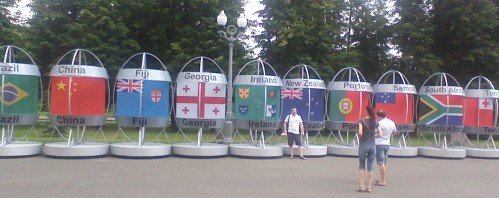
Perhaps the interminable Ministerial speeches in Russian
were also about
space – it was hard to tell. And on the second evening,
a
French electronic music band from the 1970s, named, er,
Space, performed on a stage specially constructed in
the stands, though only after most of the already thin audience had already
gone home, thus creating even more
space. Periodically, when
space appeared in the
tightly-choreographed programme of rugby, fans were
regaled as further groups of cheerleaders in colourful skimpy outfits
bounded and somersaulted on to the turf brandishing Russian flags rather than pom-poms.
But the secret ingredient that has made every RWC7s
heretofore a roaring success is the
fans – and there were just far too few to generate the usual party ambience.
Moscow is difficult and expensive to get to and the marketing was very poor.
The (few) fans’ usual boisterousness was further dampened by
 |
excruciating
security arrangements every time you entered or left the stadium,
|
 |
the women's Gorogok
Stadium being fifteen minutes unsignposted walk away, thirty if (when)
you got lost, |
 |
a ban on
alcohol, |
 |
very rudimentary food arrangements
(see pic), |
 |
an absence of interesting
stalls and merchandising, |
 |
the blanketing of the venue by armed soldiers and
police, and |
 |
stern signs admonishing fans to be well behaved and inoffensive (even
when the ref makes a wrong call?). |

This photograph illustrates the pathetic “catering”
arrangements at the Luzhniki stadium (note the long queues amid the vast
surrounding
space),
where the only food available was grim burgers, stale sandwiches and cold
hot-dogs, or “crapdogs” as the Russians evidently seem to call them.
“Crapdogs” seems a wholly appropriate metaphor not
only for the victualling but for the tournament as a whole.
The venue was a poor and avoidable choice
by the International Rugby
Board and will have done little to popularise RWC7s, which is a great
pity. And every foreign fan I spoke to swore he/she never wanted to return
to Moscow - ever.
 We will to have wait until 2018 for the next RWC7s, so as to intersperse
it on a two yearly cycle with the Olympics since the latter will include
rugby Sevens as from Rio 2016. Until then, however, for those who need their
regular Sevens fix, there is always the
IRB Sevens World Series with regular
competitions in great venues around the world; it throws up an overall
league winner every year.
We will to have wait until 2018 for the next RWC7s, so as to intersperse
it on a two yearly cycle with the Olympics since the latter will include
rugby Sevens as from Rio 2016. Until then, however, for those who need their
regular Sevens fix, there is always the
IRB Sevens World Series with regular
competitions in great venues around the world; it throws up an overall
league winner every year.
And nothing at all about
space.
Here

Back to List of Contents
|
Missing Mubarak - 14th July 2013
On 25 January 2011, the people of Egypt erupted in nationwide
protest at the country's long-standing kleptocracy under the smarmy
President Hosni Mubarak, in power for three decades ever since his
predecessor Anwar Sadat was assassinated 1981 (for making peace with
Israel).
It took nearly nine hundred deaths but just seventeen days
for Mr Mubarak to resign - and promptly find himself under arrest charged
with causing the deaths of protestors and other crimes.
The Arab Spring had gripped Egypt and ushered in hopes of
a new democracy and new freedoms in the world's largest Arab state. Mr
Mubarak, though pretending to be sick, was meanwhile convicted of complicity
to the murder of protestors and sentenced to life in prison where he remains
pending an appeal.
The Egyptian armed forces held power for the next sixteen
months while democratic parliamentary and presidential elections were
organised. Then, on 30th June 2012, Mohamed Morsi became the first
elected leader of Egypt in its five-thousand year history. Mr Morsi is
a senior member of the notoriously Islamist Muslim Brotherhood, who together
with even more extreme Islamists grabbed three-quarters of the vote.
Thus the new, rabidly Islamist regime proceeded to implement as much Sharia
as they could think of with scant regard to economic policies that might
improve the actual livelihoods of citizens. Moreover, as Mark Steyn
wittily points out, Mr Morsi was a
one-man-one-vote-one-time type of guy who would have expected to remain
in power at least as long as Mr Mubarak. To this end, he quickly set
about granting himself unlimited powers and clamping down on any dissenters
or opponents.
But life became so much more miserable for the ordinary
people that a second uprising exploded on 30th June 2013, this time against
Mr Morsi and the Muslim Brotherhood. So in just four days he found
himself, to his astonishment, kicked out in a military coup by General Abdul
Fatah al-Sisi, the Army Chief and defence minister Mr Morsi himself had
appointed just the previous August. So after just 368 days in power
there he was sitting in a filthy Cairo jail cell, no doubt next door to Mr
Mubarak.
Meantime, of course, America's Buffoon-in-Chief has, as
usual, no idea of what just happened. He is asking his advisers if
this was indeed a coup (hello - when the army drives up to the presidential
palace, locks up the president and announces that he has been deposed and it
is now in charge, that is the very definition of a coup d'état. Just
ask any Nigerian; they've all seen plenty). The B-i-C is dithering
because if it is a coup, America has to
suspend the $1.3 billion that its taxpayers are strong-armed into
handing over to Egypt every year as part of Jimmy Carter's 1979 peace deal
with Israel that caused Sadat's death (Israel gets a handout of perhaps
double
Egypt's).
So from kleptocracy to martial law to sharia to martial
law in just 2˝ years, with more fun no doubt to follow and no sign or
prospect of any improvement for the ordinary Egyptian.
There are many protestors today who must be wondering was
it really such a good idea to get rid of Mubarak.
And did I really photograph this billboard on the drive
into Cairo?

Note: this billboard has of course
nothing whatever
to do with
this one.

Back to List of Contents |
| |
| |
| See the
Archive and Blogroll at top left and right, for your convenience
Back to Top of Page |
Now, for a little [Light Relief]

“”
|
|

won by New Zealand |
|
Gift Idea
Cuddly Teddy Bears
looking for a home
Click for details
“” |
|


Neda Agha Soltan;
shot dead in Teheran
by Basij militia |

Good to report that as at
14th September 2009
he is at least
alive.
FREED AT LAST,
ON 18th OCTOBER 2011,
GAUNT BUT OTHERWISE REASONABLY HEALTHY |
|
 |
|
 |
|
BLOGROLL
Adam Smith
Alt
Tag
Andrew
Sullivan
Atlantic Blog (defunct)
Back Seat
Drivers
Belfast
Gonzo
Black Line
Blog-Irish (defunct)
Broom of Anger
Charles Krauthammer
Cox and Forkum
Defiant
Irishwoman
Disillusioned Lefty
Douglas Murray
Freedom
Institute
Gavin's Blog
Guido Fawkes
Instapundit
Internet Commentator
Irish
Blogs
Irish Eagle
Irish
Elk
Jawa
Report
Kevin
Myers
Mark
Humphrys
Mark Steyn
Melanie
Phillips
Not
a Fish
Parnell's
Ireland
Rolfe's
Random Review
Samizdata
Sarah
Carey / GUBU
Sicilian
Notes
Slugger O'Toole
Thinking Man's Guide
Turbulence
Ahead
Victor Davis Hanson
Watching Israel
Wulfbeorn, Watching

Jihad
Terrorism
Awareness Project
Religion
Iona Institute
Skeptical Bible
Skeptical Quran
Leisure
Razzamatazz
Blog
Sawyer
the Lawyer
Tales from Warri
Twenty
Major
Graham's Sporting Wk
Blog Directory
Eatonweb
Discover the
World
My Columns in the
|
|
What I've recently
been reading

“The Lemon Tree”, by Sandy
Tol (2006),
is a delightful novel-style history of modern Israel and Palestine told
through the eyes of a thoughtful protagonist from either side, with a
household lemon tree as their unifying theme.
But it's not
entirely honest in its subtle pro-Palestinian bias, and therefore needs
to be read in conjunction with an antidote, such as

See
detailed review
+++++

This examines events which led to BP's 2010 Macondo blowout in
the Gulf of Mexico.
BP's ambitious CEO John Browne expanded BP through adventurous
acquisitions, aggressive offshore exploration, and relentless
cost-reduction that trumped everything else, even safety and long-term
technical sustainability.
Thus mistakes accumulated, leading to terrifying and deadly accidents in
refineries, pipelines and offshore operations, and business disaster in
Russia.
The Macondo blowout was but an inevitable outcome of a BP culture that
had become poisonous and incompetent.
However the book is gravely compromised by a
litany of over 40 technical and stupid
errors that display the author's ignorance and
carelessness.
It would be better
to wait for the second (properly edited) edition before buying.
As for BP, only a
wholesale rebuilding of a new, professional, ethical culture will
prevent further such tragedies and the eventual destruction of a once
mighty corporation with a long and generally honourable history.
Note: I wrote
my own reports on Macondo
in
May,
June, and
July 2010
+++++

A horrific account
of:
 |
how the death
penalty is administered and, er, executed in Singapore,
|
 |
the corruption of
Singapore's legal system, and |
 |
Singapore's
enthusiastic embrace of Burma's drug-fuelled military dictatorship |
More details on my
blog
here.
+++++

This is
nonagenarian Alistair Urquhart’s
incredible story of survival in the Far
East during World War II.
After recounting a
childhood of convention and simple pleasures in working-class Aberdeen,
Mr Urquhart is conscripted within days of Chamberlain declaring war on
Germany in 1939.
From then until the
Japanese are deservedly nuked into surrendering six years later, Mr
Urquhart’s tale is one of first discomfort but then following the fall
of Singapore of ever-increasing, unmitigated horror.
After a wretched
journey Eastward, he finds himself part of Singapore’s big but useless
garrison.
Taken prisoner when Singapore falls in
1941, he is, successively,
 |
part of a death march to Thailand,
|
 |
a slave labourer on the Siam/Burma
railway (one man died for every sleeper laid), |
 |
regularly beaten and tortured,
|
 |
racked by starvation, gaping ulcers
and disease including cholera, |
 |
a slave labourer stevedoring at
Singapore’s docks, |
 |
shipped to Japan in a stinking,
closed, airless hold with 900 other sick and dying men,
|
 |
torpedoed by the Americans and left
drifting alone for five days before being picked up, |
 |
a slave-labourer in Nagasaki until
blessed liberation thanks to the Americans’ “Fat Boy” atomic
bomb. |
Chronically ill,
distraught and traumatised on return to Aberdeen yet disdained by the
British Army, he slowly reconstructs a life. Only in his late 80s
is he able finally to recount his dreadful experiences in this
unputdownable book.
There are very few
first-person eye-witness accounts of the the horrors of Japanese
brutality during WW2. As such this book is an invaluable historical
document.
+++++

“Culture of Corruption:
Obama and His Team of Tax Cheats, Crooks, and Cronies”
This is a rattling good tale of the web
of corruption within which the American president and his cronies
operate. It's written by blogger Michele Malkin who, because she's both
a woman and half-Asian, is curiously immune to the charges of racism and
sexism this book would provoke if written by a typical Republican WASP.
With 75 page of notes to back up - in
best blogger tradition - every shocking and in most cases money-grubbing
allegation, she excoriates one Obama crony after another, starting with
the incumbent himself and his equally tricky wife.
Joe Biden, Rahm Emmanuel, Valerie Jarett,
Tim Geithner, Lawrence Summers, Steven Rattner, both Clintons, Chris
Dodd: they all star as crooks in this venomous but credible book.
ACORN, Mr Obama's favourite community
organising outfit, is also exposed for the crooked vote-rigging machine
it is.
+++++

This much trumpeted sequel to
Freakonomics is a bit of disappointment.
It is really just
a collation of amusing
little tales about surprising human (and occasionally animal) behaviour
and situations. For example:
 |
Drunk walking kills more people per
kilometer than drunk driving. |
 |
People aren't really altruistic -
they always expect a return of some sort for good deeds. |
 |
Child seats are a waste of money as
they are no safer for children than adult seatbelts. |
 |
Though doctors have known for
centuries they must wash their hands to avoid spreading infection,
they still often fail to do so. |
 |
Monkeys can be taught to use washers
as cash to buy tit-bits - and even sex. |
The book has no real
message other than don't be surprised how humans sometimes behave and
try to look for simple rather than complex solutions.
And with a final
anecdote (monkeys, cash and sex), the book suddenly just stops dead in
its tracks. Weird.
++++++

A remarkable, coherent attempt by Financial Times economist Alan Beattie
to understand and explain world history through the prism of economics.
It's chapters are
organised around provocative questions such as
 |
Why does asparagus come from Peru? |
 |
Why are pandas so useless? |
 |
Why are oil and diamonds more trouble
than they are worth? |
 |
Why doesn't Africa grow cocaine? |
It's central thesis
is that economic development continues to be impeded in different
countries for different historical reasons, even when the original
rationale for those impediments no longer obtains. For instance:
 |
Argentina protects its now largely
foreign landowners (eg George Soros) |
 |
Russia its military-owned
businesses, such as counterfeit DVDs |
 |
The US its cotton industry
comprising only 1% of GDP and 2% of its workforce |
The author writes
in a very chatty, light-hearted matter which makes the book easy to
digest.
However it would
benefit from a few charts to illustrate some of the many quantitative
points put forward, as well as sub-chaptering every few pages to provide
natural break-points for the reader.
+++++

This is a thrilling book of derring-do behind enemy lines in the jungles
of north-east Burma in 1942-44 during the Japanese occupation.
The author was
a member of Britain's V Force, a forerunner of the SAS. Its remit was to
harass Japanese lines of
command, patrol their occupied territory, carryout sabotage and provide
intelligence, with the overall objective of keeping the enemy out of
India.
Irwin
is admirably yet brutally frank, in his
descriptions of deathly battles with the Japs, his execution of a
prisoner, dodging falling bags of rice dropped by the RAF, or collapsing
in floods of tears through accumulated stress, fear and loneliness.
He also provides some fascinating insights into the mentality of
Japanese soldiery and why it failed against the flexibility and devolved
authority of the British.
The book amounts to
a very human and exhilarating tale.
Oh, and Irwin
describes the death in 1943 of his colleague my uncle, Major PF
Brennan.
+++++
Other books
here |
|

Won by New Zealand |
|

Won by New Zealand |
|

Click for an account of this momentous,
high-speed event
of March 2009
Won by Wales |
|

Click on the logo
to get a table with
the Rugby World Cup
scores, points and rankings.
After
48
crackling, compelling, captivating games, the new World Champions are,
deservedly,
SOUTH AFRICA
England get the Silver,
Argentina the Bronze. Fourth is host nation France.
No-one can argue with
the justice of the outcomes
Over the competition,
the average
points per game = 52,
tries per game = 6.2,
minutes per try =
13 |
|

Click on the logo
to get a table with
the final World Cup
scores, points, rankings and goal-statistics |
|
 |
| 

